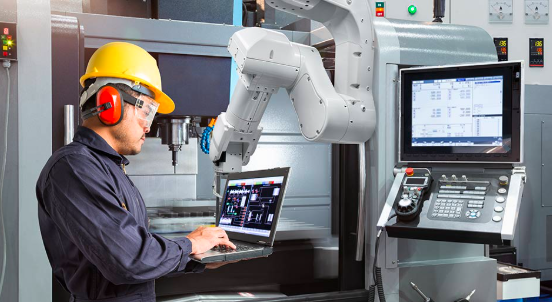CNC Machining Services: The Cornerstone of Modern Manufacturing

Precision Meets Efficiency
In today’s competitive industrial landscape, precision and efficiency are non-negotiable. Companies across sectors demand components with tight tolerances and high durability, often under strict deadlines. This is where cnc machining services play a vital role. By combining computer-controlled automation with expert engineering, these services enable the mass production of complex parts with incredible accuracy, speed, and reliability.
What Is CNC Machining?
Instructions are programmed into the CNC machine via a digital file (usually G-code), allowing it to carry out intricate operations like drilling, milling, turning, and cutting with minimal human intervention.
Unlike manual machining, CNC machining delivers consistent output with zero deviation between parts, making it ideal for mass production, prototyping, and customization across industries.
Key Components of CNC Machining Services
- EDM (Electrical Discharge Machining): Ideal for hard metals and intricate shapes.
- CNC Grinding: Produces very fine finishes and precise tolerances.
- Surface Finishing: Anodizing, plating, polishing, and painting enhance part appearance and durability.
Most service providers offer design support, CAD/CAM integration, and prototyping to assist customers from concept to production.
Why CNC Machining Services Are in High Demand
Modern manufacturers value CNC machining services for several key reasons:
- Precision: Components are machined with tolerances as tight as ±0.001 inches.
- Consistency: Every unit in a batch matches the original design exactly.
- Speed: Automated operations reduce turnaround time for both prototypes and large-volume orders.
- Versatility: Suitable for metals (aluminum, steel, brass, titanium) and plastics (ABS, nylon, PEEK).
These qualities make CNC services indispensable in sectors like aerospace, automotive, healthcare, electronics, defense, and industrial machinery.
Applications Across Industries
CNC machining services are deeply integrated into various global industries. Their influence can be seen in the smallest electronics to the largest aircraft components.
- Aerospace: Turbine blades, structural frames, engine mounts.
- Automotive: Gearboxes, engine blocks, brake systems.
- Medical: Orthopedic implants, surgical instruments, diagnostic device parts.
- Electronics: Enclosures, heat sinks, circuit board supports.
- Robotics: Arm joints, brackets, servo housings.
- Oil and Gas: Valve bodies, drill collars, pump housings.
In each of these industries, precision, material strength, and component functionality are mission-critical. CNC machining meets those standards efficiently.
Benefits for Startups and Innovators
CNC machining services are not just for large corporations. Startups, product developers, and design engineers also leverage these services for rapid prototyping, design validation, and market testing.
Instead of investing in expensive tools or in-house machines, small teams can outsource their machining needs to professional service providers. This reduces upfront costs, shortens development cycles, and increases product quality—without compromising intellectual property.
Some CNC service providers also offer instant quoting platforms, online design feedback, and flexible ordering options to help startups scale at their own pace.
Customization and Material Options
CNC machining stands out for its ability to deliver custom parts with exact specifications. Whether you need a one-off prototype or thousands of identical components, machining services can meet your design intent with pinpoint accuracy.
Materials also play a major role. Clients can choose from:
- Metals: Aluminum, stainless steel, copper, titanium, brass.
- Plastics: Delrin, polycarbonate, ABS, nylon, PEEK.
- Exotic Alloys: Inconel, Hastelloy, tungsten-based alloys for high-heat or corrosive environments.
Different finishes—anodizing, powder coating, polishing, or black oxide—can be applied depending on the end-use application.
Global Access to CNC Services
Thanks to digital platforms, businesses can now access CNC machining services globally. Whether from local providers or overseas manufacturers in China, the US, or Europe, companies can compare quotes, lead times, materials, and capabilities with ease.
This global accessibility enhances competition, improves pricing, and empowers customers to find the best-fit vendor for their unique needs.
Moreover, with advancements in shipping and logistics, even complex components can be delivered worldwide in just a few days.
Read also: Beyond the Logo: Strategic Placement of Branding Fonts
Quality Assurance and Certification
Top-tier CNC machining providers maintain strict quality assurance practices. These include:
- In-process monitoring: Real-time inspections during machining.
- Final inspections: Verification using calipers, micrometers, and coordinate measuring machines (CMMs).
Certifications such as ISO 9001, AS9100 (for aerospace), and ISO 13485 (for medical) ensure the service provider complies with industry-specific standards and customer expectations.
Challenges and Considerations
While CNC machining offers tremendous benefits, it’s not without its challenges:
- Initial Setup Costs: For complex parts, programming and setup can be time-consuming.
- Material Waste: Being a subtractive process, there’s more waste compared to additive manufacturing.
- Lead Time for Custom Tools: If special tooling is needed, this can extend production schedules.
These challenges can be mitigated by working with experienced vendors, optimizing part designs for machining, and ensuring clear communication during the design phase.
The Role of Digital Innovation
Digital transformation is revolutionizing CNC machining services. AI-based CAM software now helps in optimizing tool paths and improving machining speeds. IoT-enabled machines provide real-time feedback and maintenance alerts, reducing downtime.
Some platforms also offer design-for-manufacturing (DFM) analysis tools that highlight potential design flaws or machining difficulties before production begins.
Conclusion
CNC machining services are a cornerstone of modern engineering and manufacturing. From prototyping to full-scale production, they offer unmatched accuracy, flexibility, and efficiency. Their application spans across industries and continents, playing a crucial role in innovation and industrial growth.
As technology continues to evolve, these services are becoming smarter, faster, and greener. Businesses of all sizes—startups or global enterprises—stand to benefit from incorporating professional CNC machining into their supply chain.







